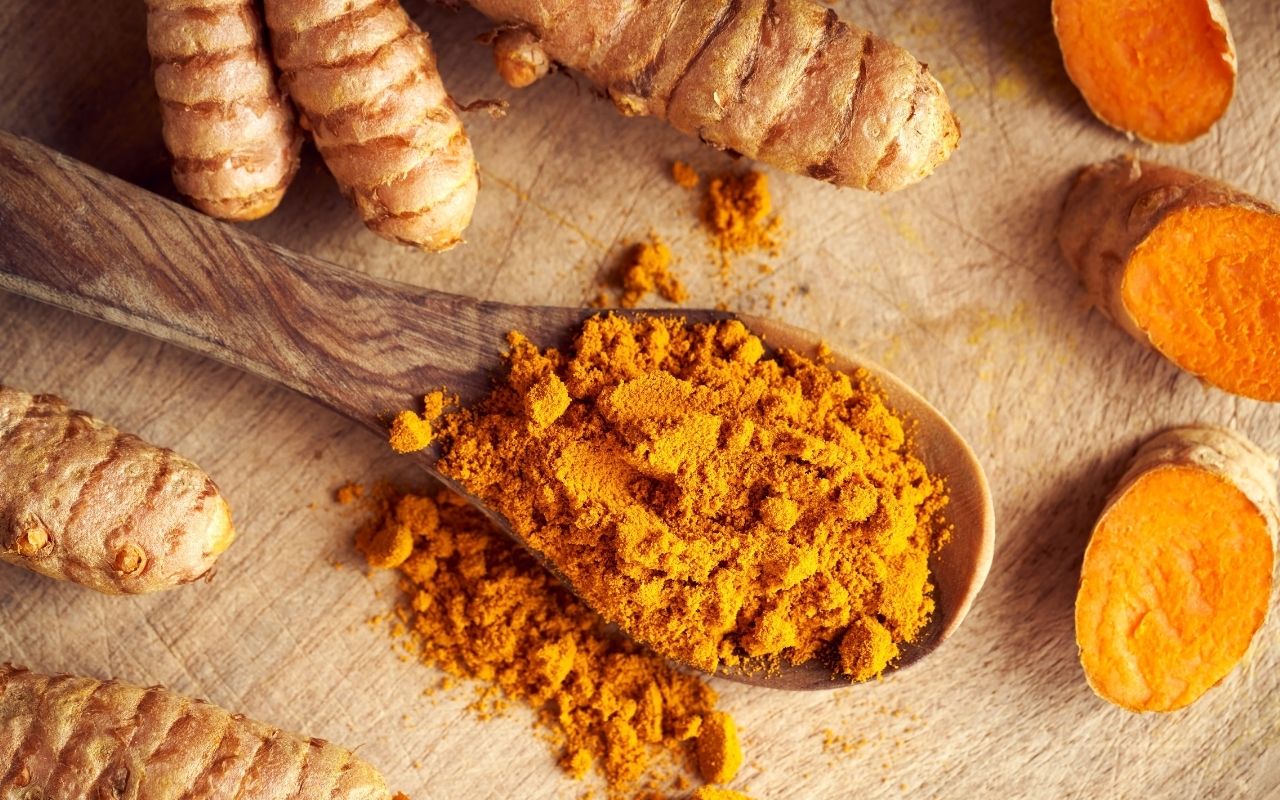Turmeric, a vibrant yellow-orange spice, has long been a staple worldwide in kitchens and medicine cabinets, especially in Asia. Its significance transcends culinary applications and is deeply rooted in cultural rituals and traditional medicine. As research continues to unveil the myriad benefits of this spice, turmeric has garnered global recognition for its potential to promote health and wellness. This article explores turmeric's rich history, diverse uses, and numerous health benefits, shedding light on why it is considered a golden spice with immense value.
Turmeric, scientifically known as Curcuma longa, is a rhizomatous herbaceous perennial plant belonging to the ginger family, Zingiberaceae. Native to Southeast Asia, this spice has found its way into global cuisine, traditional medicine, and modern health supplements. The plant's root or rhizome is used fresh or dried and ground into a powder, the latter being the most common form used in cooking and medicine.
A Brief History of Turmeric
Turmeric's history dates back nearly 4,000 years. It has been used as a spice and a medicinal herb in India and other parts of Asia. Ancient texts and artifacts suggest that turmeric was a vital component of traditional Ayurvedic medicine, a holistic healing system developed in India. It was first used as a dye due to its vibrant color and later for its presumed medicinal properties.
Turmeric's journey from Asia to the rest of the world is fascinating. It spread to Southeast Asia along with Hinduism and Buddhism. Monks and priests used turmeric to dye their robes. Fascinatingly, turmeric was also found in the ancient remains in places like Tahiti, Hawaii, and Easter Island before European contact. This suggests that the Austronesian people independently domesticated the plant, highlighting its widespread historical significance.
Moreover, in Medieval Europe, turmeric was referred to as “Indian saffron” because of its exotic and valuable nature. This historical context underscores turmeric's extensive reach and enduring appeal across various cultures.
Cultural Significance and Rituals
In India, turmeric is of great cultural and religious importance. It is a vital component in Hindu rituals and ceremonies. For instance, in Tamil Nadu and Andhra Pradesh, dried turmeric tuber tied with a string is used to create a Thali necklace, an essential part of Tamil-Telugu marriage rituals. Similarly, in Marathi and Konkani weddings, the couple ties turmeric tubers around their wrists during a Kankana Bandhana ceremony.
The Haldi ceremony, a pre-wedding event, involves applying turmeric paste to both the bride and groom. This ritual is believed to purify the body, ward off evil spirits, and impart a natural glow to the skin. Turmeric's cultural significance extends beyond India, as it is also used in rituals by the Austronesian people in Oceania and Madagascar.
Turmeric in Traditional Medicine
Turmeric has been integral to traditional medicine systems such as Ayurveda, Siddha, Unani, and Traditional Chinese Medicine (TCM). In Ayurveda, turmeric balances the doshas—Vata, Pitta, and Kapha. It is believed to enhance digestion, improve liver function, and purify the blood. The spice also treats respiratory conditions, joint pain, skin disorders, and digestive issues.
In TCM, turmeric is used to invigorate the blood, alleviate pain, and dispel wind damage. It is often prescribed for conditions such as menstrual, chest, and abdominal pain. The diverse applications across these traditional systems underscore turmeric's perceived versatility and efficacy in promoting health and well-being.
Culinary Uses of Turmeric
Turmeric's most recognizable use is in cooking, particularly in Indian cuisine. It is a critical ingredient in curry powders, imparting a distinct yellow hue and earthy flavor to dishes. Turmeric pairs well with various spices and can enhance the flavor profile of various recipes. Some common culinary uses include:
- Curries and Soups: Turmeric is a staple in Indian curries, providing color and depth of flavor. It is also used in soups and stews for its warming qualities.
- Golden Milk: Also known as turmeric latte, golden milk is a blend of turmeric with milk (or a plant-based alternative), often sweetened with honey and spiced with cinnamon, ginger, and black pepper. This drink is revered for its anti-inflammatory properties.
- Rice Dishes: Turmeric imparts a beautiful yellow color and a subtle flavor to rice. It is commonly used in biryanis and pilafs.
- Smoothies and Juice: Turmeric can be blended into smoothies and juices for an added health boost. It pairs well with fruits like pineapple, mango, and orange.
- Marinades and Rubs: Turmeric is often used in marinades for meat and fish, lending its color and flavor to the dish.
Health Benefits of Turmeric
The primary active compound in turmeric is curcumin, which is responsible for many of its health benefits. Curcumin has potent anti-inflammatory and antioxidant properties, making it a subject of extensive research. Some of the notable health benefits of turmeric include:
- Anti-Inflammatory Effects: Chronic inflammation is a common factor in many diseases, including heart disease, cancer, metabolic syndrome, Alzheimer's disease, and various degenerative conditions. Curcumin is a potent anti-inflammatory compound that can inhibit several molecules involved in inflammation.
- Antioxidant Activity: Curcumin has strong antioxidant properties. It helps neutralize free radicals and boost the body's own antioxidant enzymes, which can protect cells from damage and reduce oxidative stress.
- Pain and Arthritis Relief: Turmeric is effective in reducing symptoms of arthritis. Studies indicate that curcumin can relieve pain and improve function in people with osteoarthritis and rheumatoid arthritis. MDPI
- Brain Health and Neuroprotection: Curcumin can increase brain-derived neurotrophic factor (BDNF), a growth hormone that functions in the brain. This may help delay or even reverse many brain diseases and age-related decreases in brain function. There is also some evidence that turmeric can improve memory and attention.
- Heart Health: Curcumin may improve endothelial function, which is important for heart health. It also helps reduce inflammation and oxidation, contributing to a healthier cardiovascular system.
- Cancer Prevention: Research is ongoing, but studies have shown that curcumin may help reduce the growth of cancer cells and inhibit the spread of tumors. It may also contribute to the death of cancerous cells.
- Digestive Health: Turmeric has been used to aid digestion and reduce bloating and gas. It can stimulate bile production, which may help with fat digestion. Turmeric's anti-inflammatory properties can also benefit conditions like inflammatory bowel disease (IBD).
- Skin Health: Topical and oral turmeric treatments can improve skin conditions such as acne, eczema, and psoriasis due to its anti-inflammatory and antimicrobial properties.
Turmeric Supplements and Dosage
Turmeric can be consumed in various forms, including fresh, powdered, and as supplements. Supplements often contain higher concentrations of curcumin and are accompanied by piperine (black pepper extract) to enhance absorption.
While turmeric and curcumin are generally safe, it is crucial to adhere to recommended dosages to avoid potential side effects. High doses or prolonged use can cause gastrointestinal issues like nausea and diarrhea. People with gallbladder disease, pregnant and breastfeeding women, and individuals on blood-thinning medications should consult their healthcare provider before taking turmeric supplements.
Cooking with Turmeric
Incorporating turmeric into your diet is relatively easy. Here are a few tips:
- Add a pinch of turmeric to scrambled eggs, frittatas, or tofu scrambles for a nutritional boost and vibrant color.
- Mix turmeric into soups, stews, and curries for added flavor and health benefits.
- Blend turmeric into smoothies or freshly squeezed juices for a nutritious start to your day.
- Use turmeric in marinades for meats and vegetables to enhance flavor and add a golden hue.
- Sprinkle turmeric over roasted vegetables or nuts for a tasty and healthy snack.
Potential Side Effects and Interactions
While turmeric is generally safe for most people, it can cause side effects in high doses or with prolonged use. Some potential side effects include:
- Gastrointestinal Issues: High doses of turmeric can cause nausea, diarrhea, and stomach ulcers.
- Allergic Reactions: Some individuals may experience allergic reactions to turmeric, such as skin rash, hives, or stomach pain.
- Blood Thinning: Turmeric has blood-thinning properties, which can interact with anticoagulants and antiplatelet medications. This can increase the risk of bleeding.
- Gallbladder Issues: Turmeric supplements should be avoided by people with gallstones or bile duct obstruction, as they can exacerbate these conditions.
To avoid adverse effects, starting with small doses and gradually increasing as tolerated is advisable. Consulting a healthcare provider before beginning any turmeric supplement regimen is recommended, especially for individuals with pre-existing health conditions or other medications.
Conclusion
Turmeric, often hailed as the “golden spice,” boasts a rich history and offers a multitude of uses and health benefits. From its significance in ancient rituals to its role in traditional medicine and contemporary health practices, turmeric has stood the test of time. Its active compound, curcumin, is the key to its powerful anti-inflammatory and antioxidant properties, contributing to various health benefits.
Incorporating turmeric into your daily routine can be as simple as adding it to your cooking or taking supplements. While generally safe, it is vital to use turmeric in moderation and consult a healthcare provider if necessary.
As research continues to explore turmeric's full potential, this ancient spice remains a valuable addition to your kitchen and medicine cabinet. Embrace the golden spice and discover how it can enhance your health and well-being. For more information on turmeric's health benefits and culinary uses, visit WebMD and Wikipedia.









